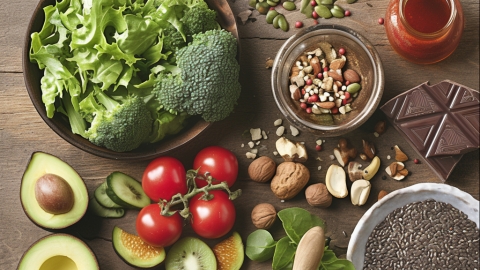What should patients with hypothyroidism pay attention to in their diet?
Hypothyroidism usually refers to hypothyroidism. Generally, patients with hypothyroidism should focus their diet on regulating iodine intake, improving metabolism, and avoiding factors that affect thyroid function. Main dietary considerations include appropriate control of iodine intake, increased dietary fiber intake, limiting high-fat foods, reducing goitrogenic substances intake, and ensuring balanced nutrition. Specific recommendations are as follows:

1. Appropriate control of iodine intake: Patients should adjust iodine intake according to their individual conditions, as not all patients require a high-iodine diet. If the condition is caused by iodine deficiency, patients may appropriately consume iodine-rich foods such as kelp and nori. However, if it is caused by autoimmune diseases such as Hashimoto's thyroiditis, excessive iodine may worsen the condition.
2. Increase dietary fiber intake: Patients often experience constipation. Therefore, the diet should include more fiber-rich foods such as whole grains, oats, celery, spinach, apples, and bananas. Dietary fiber promotes intestinal motility, alleviates constipation, helps maintain normal intestinal function, and improves the body's metabolic status.
3. Limit high-fat foods: Hypothyroidism can slow metabolism, leading to elevated blood lipids. Therefore, high-fat and high-cholesterol foods should be restricted. Foods such as animal offal, fatty meats, fried foods, and cream should be consumed less frequently and in smaller amounts. Plant oils are preferable for cooking to avoid excessive fat intake that may burden the body.
4. Reduce intake of goitrogenic substances: Some foods contain goitrogens that may interfere with thyroid hormone synthesis, such as cabbage, Chinese cabbage, radish, peanuts, and soybeans. These foods are not completely forbidden but should be consumed after being thoroughly cooked.
5. Ensure balanced nutrition: Patients should consume adequate amounts of high-quality protein, such as eggs, milk, lean meat, and fish, to provide essential amino acids and maintain muscle and organ function. Additionally, vitamins and minerals such as vitamin D, iron, and zinc should be supplemented through consumption of fresh fruits, vegetables, and nuts.
Patients should maintain regular eating habits, avoid overeating or excessive dieting, and adjust their dietary structure according to their individual conditions and medical advice to help stabilize their condition and promote recovery.




